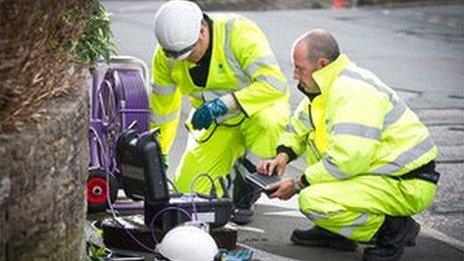Welsh Water spends £7m clearing rubbish from sewers
- Published
Workers said some people treated the drain network like a bin
Wet wipes, cotton buds and other items cost Welsh Water millions of pounds a year to remove from sewers.
The not-for-profit organisation spends £7m a year unblocking sewers.
Sewer maintenance operator Steve Tyler said children's toys, a football and even a paddling pool were among items which had been removed from pipes.
But one of the major problems workers have is wet wipes - which people mistakenly believe can be flushed down the toilet.
"It's every day, it's massive the amount of wet wipes going down the drains. People just don't understand - they think it's not causing a problem when it really is," Mr Tyler added.
Items like wet wipes and cotton buds, which do not break down, get caught on the walls of drainage pipes and eventually build up to form a blockage and even flooding.
Welsh Water, which manages 22,369 miles (36,000km) of sewers, is called to clear about 2,000 blockages every month.
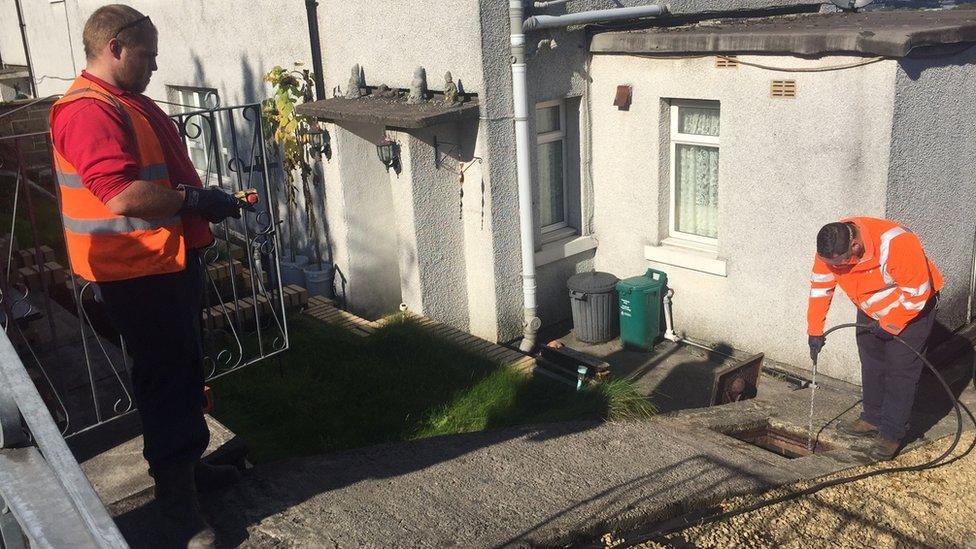
Director of environment, Tony Harrington, said more than half of this was spent due to "the wrong things being in the sewer".
"The main issue, in terms of blockages, is that customers continue to flush all sorts of items into the system which don't belong there," he added.
"We know part of the problem is when you buy products in the supermarket - like wet wipes - not that many of the products are appropriately labelled."
Computer models are being used to identify "pinch points" in the system to help prioritise future repair and replacement work as the population grows and ageing infrastructure deteriorates.
But Mr Harrington said the biggest problem going forward was climate change and more severe weather patterns which could overwhelm parts of the sewer system if a heavy downfall hits.
To help combat this, Welsh Water's Rainscape project, external will spend £80m between 2015 and 2020 to reduce the amount of surface water which gets into the system, meaning there is more space to cope with periods of heavy rain.
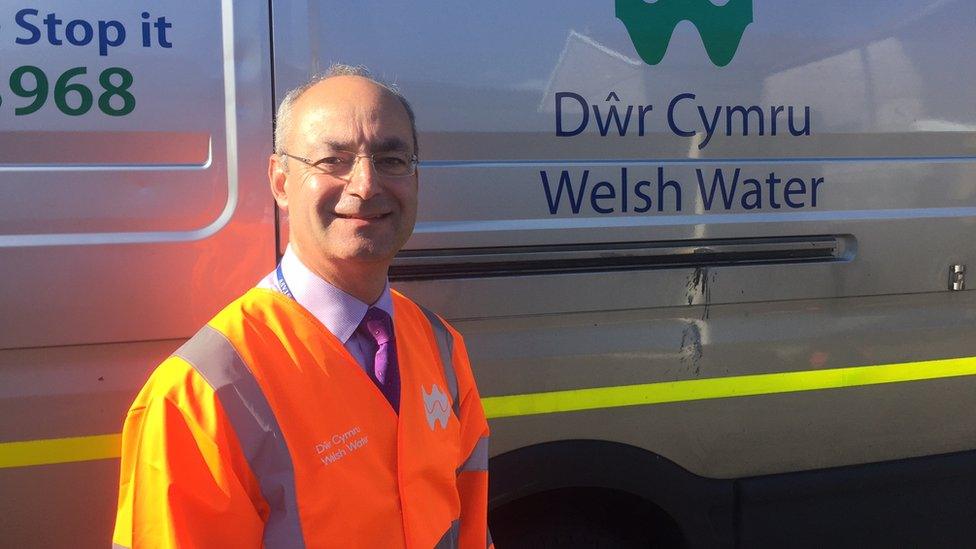
Tony Harrington said millions of pounds was spent every year clearing unnecessary blockages
- Published21 September 2016

- Published8 July 2015
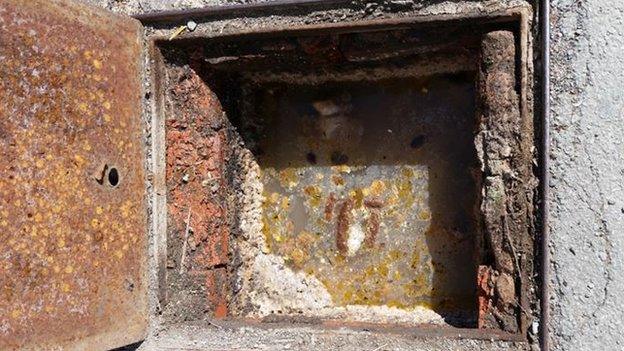
- Published19 March 2015
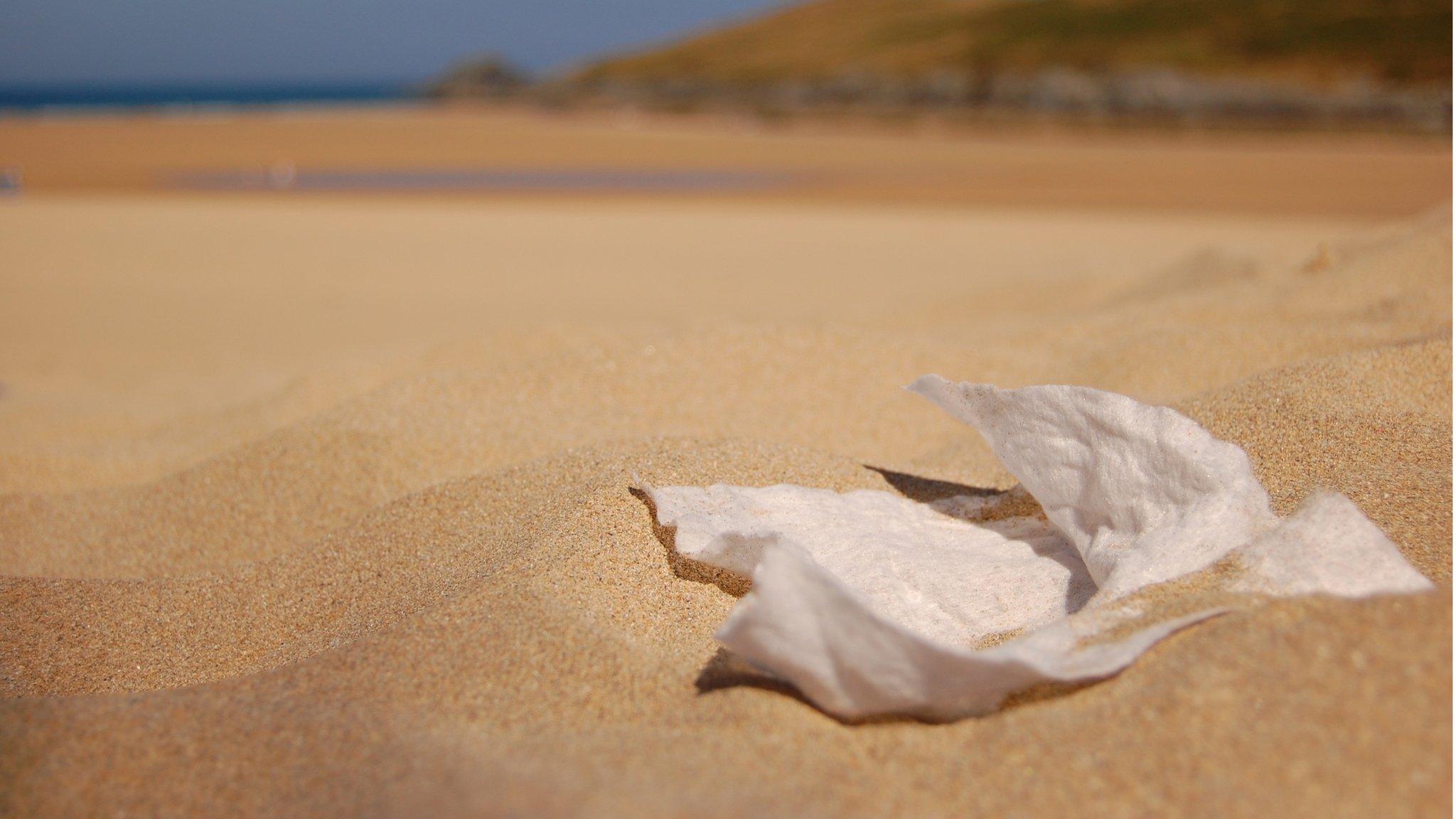
- Published10 February 2015
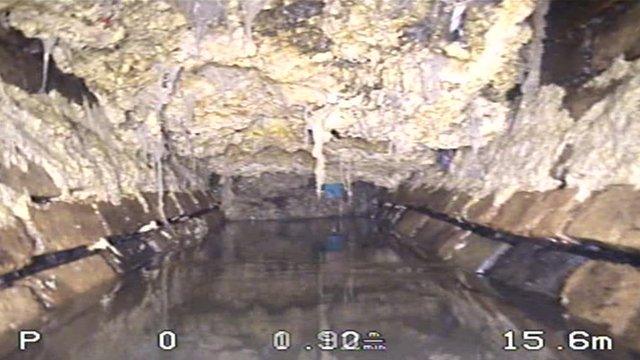
- Published15 April 2013
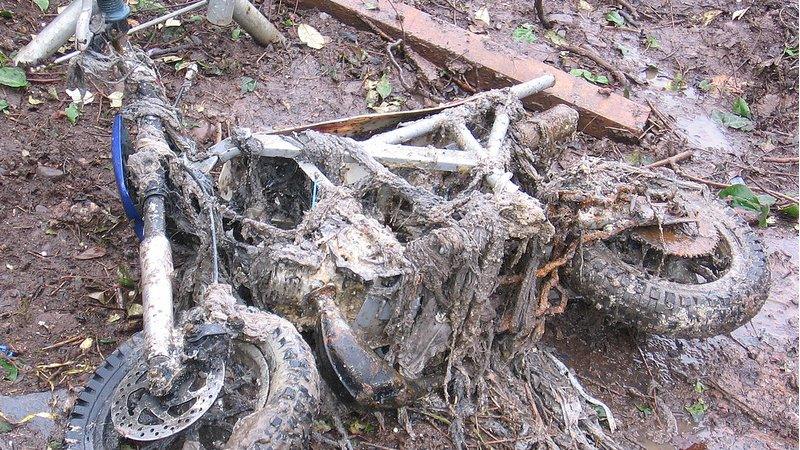
- Published14 October 2014
